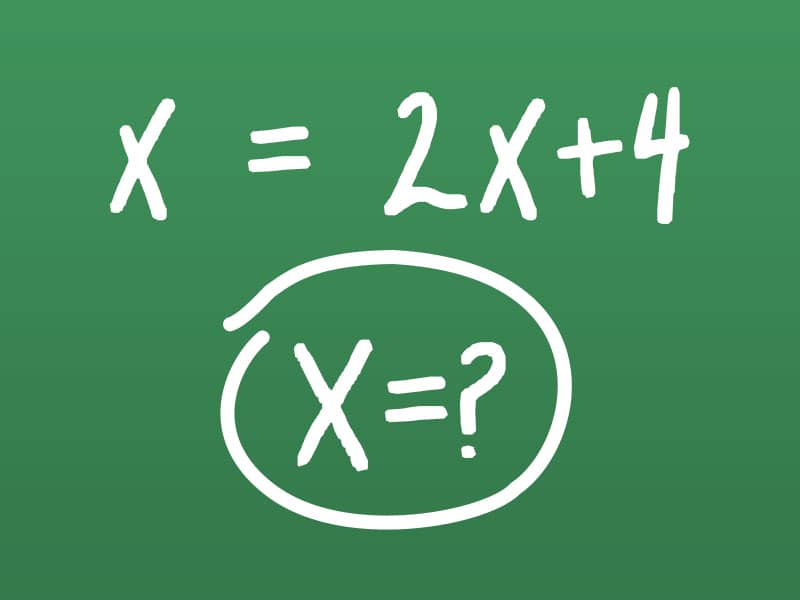For hundreds of years, the letter ‘x’ has marked the unknown in Algebra and mathematics. However, we have no idea about the Origins Story of the ‘x’ being the unknown. Who started the practice? Let us follow the tracks back to the early mathematicians to find out what gave birth to the ‘unknown x’.
First, let’s see where Algebra comes from. During 750-1258 AD, the golden age of medieval Islamic civilization, Algebra was born in the Middle East. It was in the prime of Muslim Rule, in the 9th century, that Muhammad Al-Khawarizmi documented his work on fundamentals of algebra in his book, Kitab Al-Jabar wal Muqabala. Al-Jabr later morphed into Algebra. When the empire expanded, along with the new disciplines being found, the knowledge expanded as well.

Although the origin of X presenting the unknown entity remains ambiguous, the director of The Radius Foundation, Terry Moore believes that Spanish Scholars were unable to translate certain Arabic sounds, e.g. ‘SHEEN,’ which became the cause for using X as the unknown. The unknown entity in Arabic is called ‘Al-SHALAN,’ and it has appeared in early mathematical works. The Spanish scholars did not have any corresponding words to replicate ‘SH’ sound. Hence, they used the next best thing and replaced ‘SH’ in Arabic to ‘CK’ sound, a chi symbol marked as ‘X’ in classical Greek. The Moore’s theory also stated that this ‘lost in translation’ incident also led to chi (X) being replaced by ‘x’ in Latin.

However, the theory Moore has, is not supported by any evidence from formal documentation or otherwise. Critics speculate that translation is not concerned with phonetics rather with what the words mean. Hence, the inability to translate ‘SH’ is irrelevant. The flimsy theory has sustained popularity among scholars despite being flawed.
The Webster’s Dictionary, edition 1909-1916, also supports a similar theory. It uses the word ‘SHEI’ for a singular ‘thing’ being translated to ‘XEI’ in Greek, which later became x, for short. Dr. Ali Khounsary pointed out that the word for ‘unknown’ in Greek is ‘Xenos’, and can also become x, as an abbreviation rather than lost in translation. The problem with both of these theories is still the lack of documented evidence.

We may not know, for sure, where the ‘x = unknown’ comes from. However, we do know that it was René Descartes, a great philosopher, and a mathematician during 1596-1650, who provides a documented evidence of its usage and to make the practice popular. His work was observed to have alphabets such as a, b and c dedicated for the known quantities and x, y and z dedicated to the unknowns.
More by Terry Moore at Ted Talks here;


